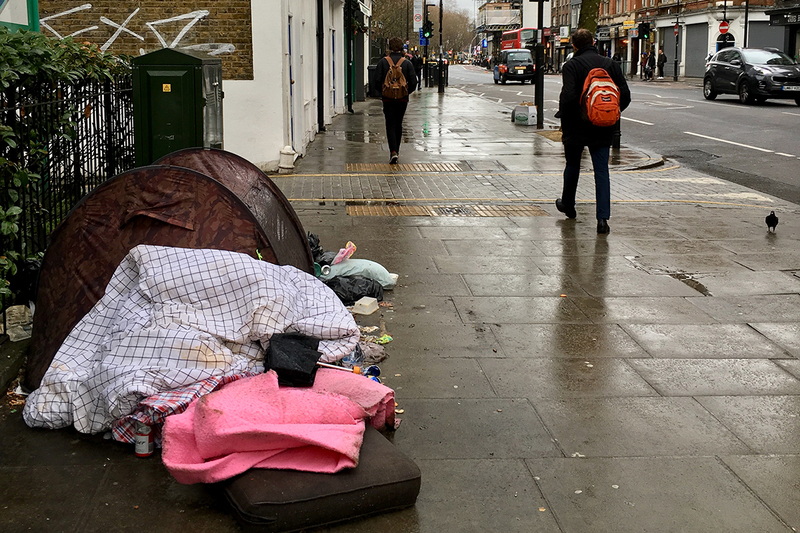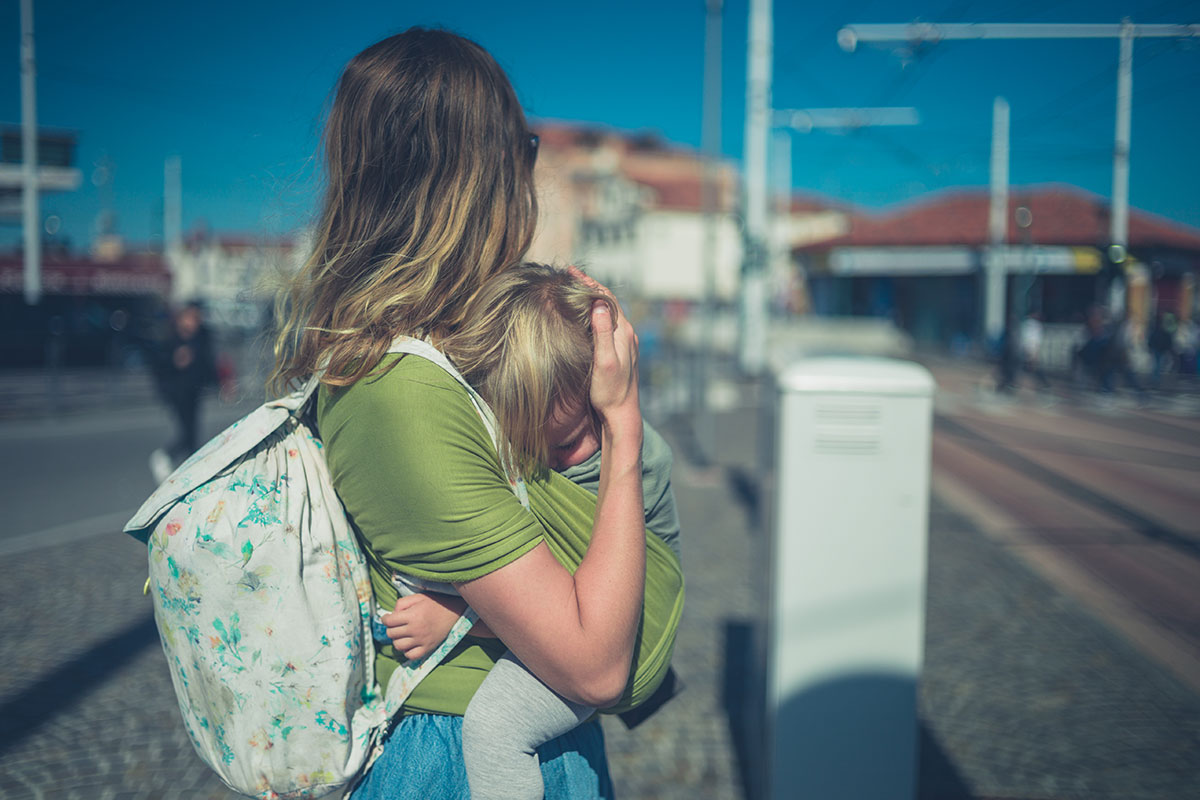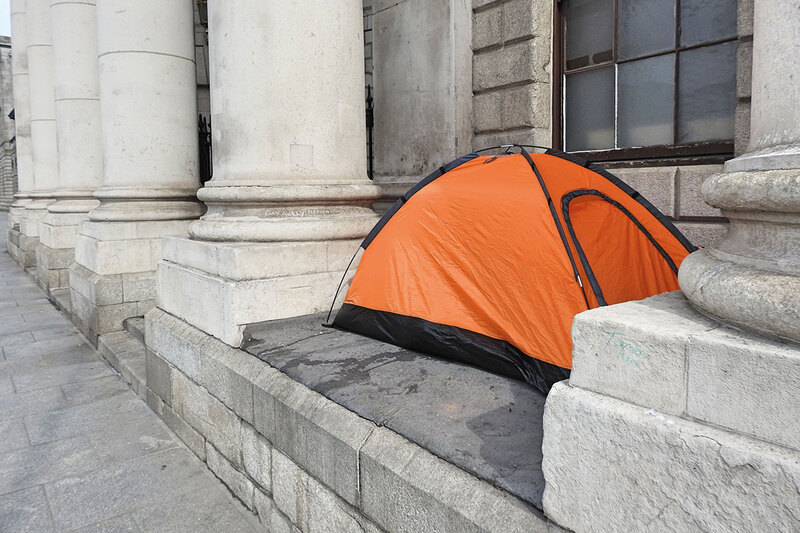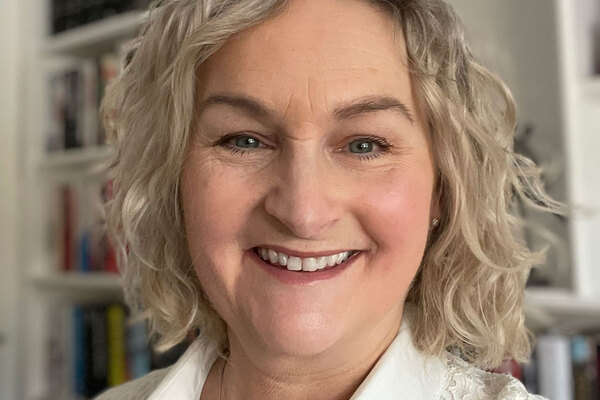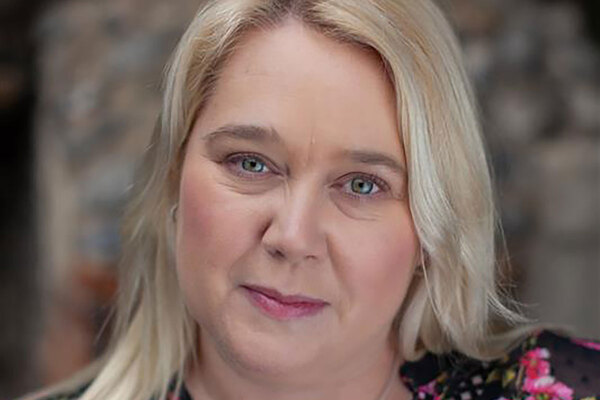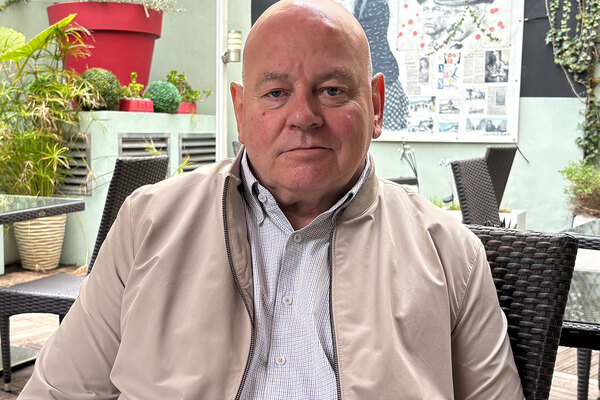Number of people rough sleeping surges by 26%
The number of people sleeping rough in England has increased by 26%, the latest government statistics show.
According to a snapshot of a single night in autumn 2022, the number of people estimated to be sleeping rough was 3,069, up from 2,443 in 2021. The government has pledged to end rough sleeping by 2024.
It comes as new government figures, published today, show that the number of households threatened with a Section 21 – or ‘no-fault’ – eviction since the government promised to ban them has reached nearly 59,000.
A £2bn strategy to end rough sleeping was published in September. It included funding allocations of £764m, with up to £500m over three years for 14,000 beds and 3,000 support staff.
Despite this, both rough sleeping and statutory homelessness figures are rising.
Compared with the previous year, rough sleeping increased in every region of England. This is the first time the country has experienced an increase since 2017.
The figure is down 28% compared with 2019, before the government’s Everyone In scheme during the COVID-19 pandemic significantly reduced the risk of rough sleeping.
It is down 35% from 2017, but up 74% since 2010, when the snapshot approach was introduced.
The largest increase (34%) in the number of people estimated to be sleeping rough was in London: 858 people, compared with 640 the year before. Nearly half of all the people sleeping rough were in London and the South East.
Most rough sleepers were male, over 26 years old and from the UK.
The rate of people sleeping rough was 5.4 people per 100,000, up from the 4.3 recorded on a single night in 2021.
The government published statutory homelessness figures alongside the rough-sleeping statistics.
The data, covering the period between July and September 2022, revealed that the number of households threatened with homelessness via no-fault evictions increased by 34.4% compared with the same period the year before.
The government is planning to ban no-fault evictions as part of sweeping reforms proposed for the private rented sector.
Theresa May first proposed the ban in April 2019, when she was prime minister, in a bid to increase security for tenants and protect them from “unethical behaviour”.
Recent research by Inside Housing found that almost 53,000 households were threatened with homelessness because of no-fault evictions between when the government promised the ban and June 2022.
The latest government figures show another 6,170 households have been threatened with a no-fault eviction, bringing the total to 58,970 since the ban was promised.
The data also shows that 75,860 households were initially assessed as homeless or threatened with homelessness and owed a statutory homelessness duty, up 4.4% from July to September 2021.
As of 30 September 2022, 99,270 households were in temporary accommodation, which is an increase of 3.9% on the same date in 2021.
Temporary accommodation figures for households with children increased by 6% to 61,820, and single households increased by 0.6% to 37,450.
Compared with the previous quarter, the number of households in temporary accommodation increased by 3.7%.
An investigation by Inside Housing at the end of last year revealed that a city’s worth of under-fives are homeless and living in temporary accommodation.
Responding to the figures, Matt Downie, chief executive of Crisis, the homelessness charity, said the figures “confirm the grim reality that the Westminster government will fail to meet its commitment to end rough sleeping by next year”.
“The fact that homelessness is once again on the rise frankly shames our society, and if alarm bells weren’t ringing across government, they should be now.
“Not only that, with almost 100,000 households stuck in temporary accommodation, many having been evicted from their homes, we’re on an extremely dangerous course.
“And with still no sign of the Renters’ Reform Bill, which would scrap no-fault evictions, many people are exposed, lacking what should be a basic legal protection,” he said.
Mr Downie urged the government to take “urgent action” to avoid homelessness “reaching a national-scale crisis”.
“Most importantly, the chancellor absolutely must commit to investing in housing benefit in the upcoming budget.
“Failing to do so will consign thousands more people to homelessness,” he said.
A spokesperson for the Department for Levelling Up, Housing and Communities said: “Over half a million households have been prevented from becoming homeless or supported into settled accommodation since 2018 and rough sleeping remains well below pre-pandemic levels.
“But we know there is more to do to help families at risk of losing their homes and to end rough sleeping for good.
“That’s why we will be abolishing Section 21 evictions and are investing £2bn over three years to tackle the issue allocated to areas with the greatest need.
“This includes financial support for people to find a new home, working with landlords to prevent evictions or providing temporary accommodation, among other preventative measures.
“Councils have a duty to ensure families are not left without a roof over their head.
“This is on top of the £37bn of government support for those struggling with increased costs and £11.5bn to deliver thousands of affordable homes for rent and to buy across the country.”
Sign up for our homelessness bulletin
Already have an account? Click here to manage your newsletters
